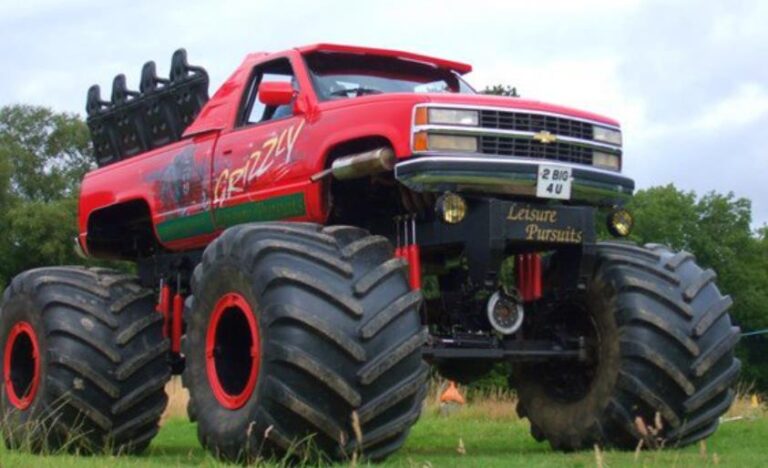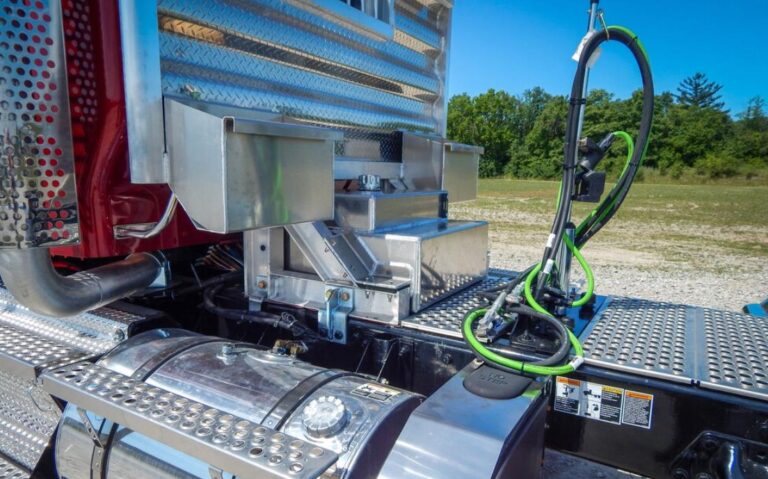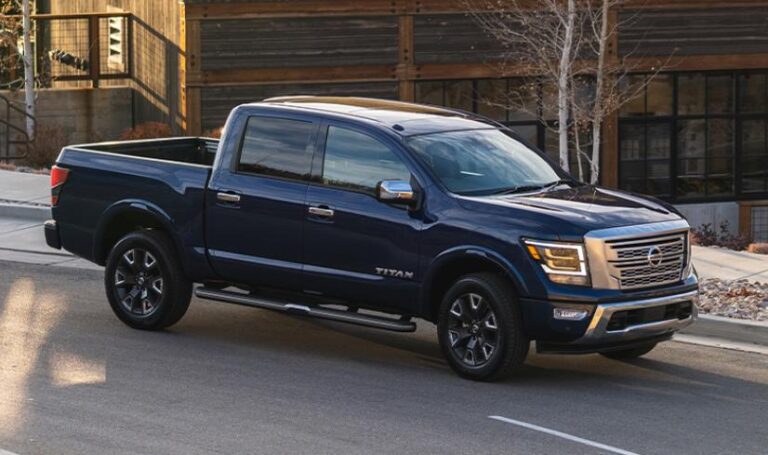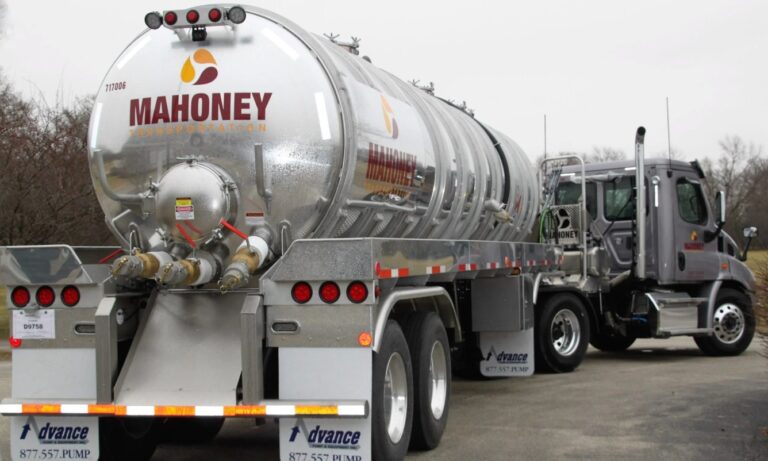Do Rental Trucks Have Tow Hitches? Quick Answer
In the realm of truck rentals, a common question arises: Do Rental Trucks Have Tow Hitches? This query is especially pertinent for individuals planning to move, tow vehicles, or transport large items. Understanding the capabilities of rental trucks is crucial in planning logistics and ensuring a smooth moving experience.
Key Takeaways
- Most major rental truck companies offer trucks with tow hitches.
- The availability of tow hitches varies based on truck size and rental company policy.
- It’s essential to confirm hitch availability and specifications when booking.
- Some rental trucks are equipped for specific towing purposes, like car towing.
Do Rental Trucks Have Tow Hitches?
Yes, many rental trucks come equipped with tow hitches. However, the availability and type of hitch can vary depending on the rental company and the size of the truck. It’s always recommended to verify specific towing capabilities and restrictions with the rental provider.
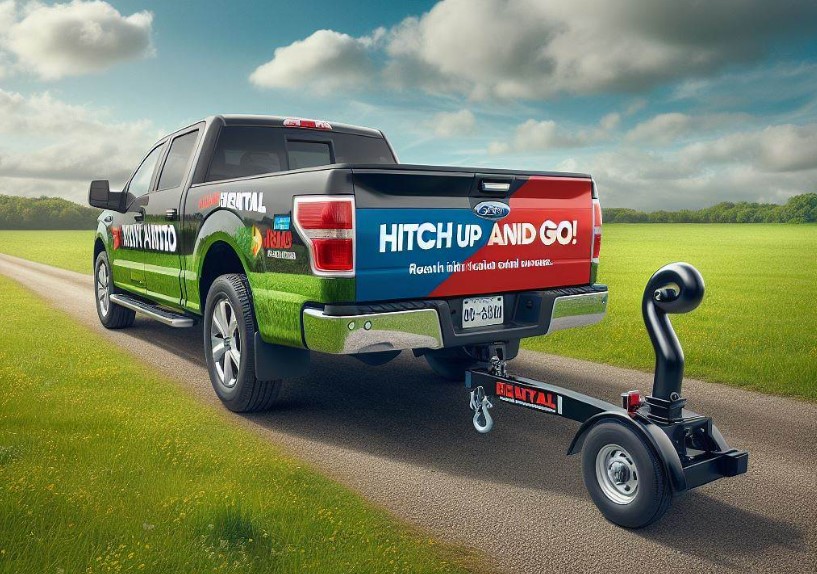
Details on Truck Variations and Hitch Types
Truck Size and Hitch Compatibility
Larger rental trucks typically have a standard tow hitch. These hitches are designed to accommodate a range of towing needs, from trailers to vehicles. Smaller trucks might also have hitches, but their towing capacity is usually limited.
Types of Hitches Available
Rental trucks often come with either a ball hitch or a receiver hitch. The ball hitch is common for light-duty towing, while the receiver hitch is suited for heavier loads. Some trucks may also offer specialized hitches for specific towing tasks, like car carriers.
Towing Capacity and Limitations
Understanding Towing Capacity
It’s crucial to know the towing capacity of the rental truck. Exceeding this limit can lead to safety hazards and potential legal issues. Rental companies provide this information, ensuring customers can make informed decisions.
Safety and Legal Considerations
When towing with a rental truck, adhering to safety guidelines and legal requirements is essential. This includes checking the condition of the hitch, securing the load properly, and following road regulations.
Rental Company Policies and Procedures
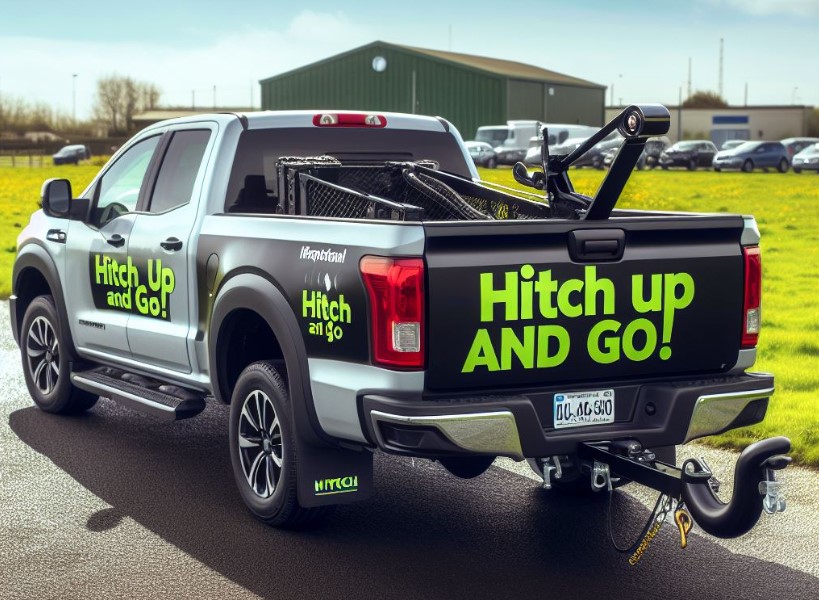
Checking Availability and Reservations
Before renting a truck, confirm with the rental company if the truck has a tow hitch and whether it meets your specific requirements. It’s advisable to make reservations in advance to ensure availability.
Rental Agreement and Additional Costs
Be aware of any additional costs associated with renting a truck with a tow hitch. Some companies might charge extra for trucks equipped for towing. Always read the rental agreement thoroughly to understand all terms and fees.
Preparing for Towing with a Rental Truck
Essential Equipment and Checks
Ensure you have all necessary equipment for towing, including safety chains, lights, and brakes on the trailer. Conduct a thorough check of the hitch, trailer, and truck before hitting the road.
Tips for Safe Towing
- Always adhere to the truck’s towing capacity.
- Practice driving with a trailer before embarking on a long journey.
- Regularly check the hitch and trailer during stops.
Towing Services and Assistance
Roadside Assistance and Support
Many rental truck companies offer roadside assistance. This can be invaluable in case of issues while towing. Confirm the availability of such services when renting the truck.
Accessing Towing Services
In some cases, rental companies provide additional towing services. This might include assistance with attaching the trailer or vehicle to the truck. Check with the rental provider for these services and any associated costs.
What Is The Policy For Renting A Car With A Trailer Hitch?
When renting a car to use a trailer hitch, it’s important to understand the specific policies of the rental company. Generally, rental companies are cautious about allowing towing due to the increased risk of mechanical issues and accidents. Here’s what you typically need to know:
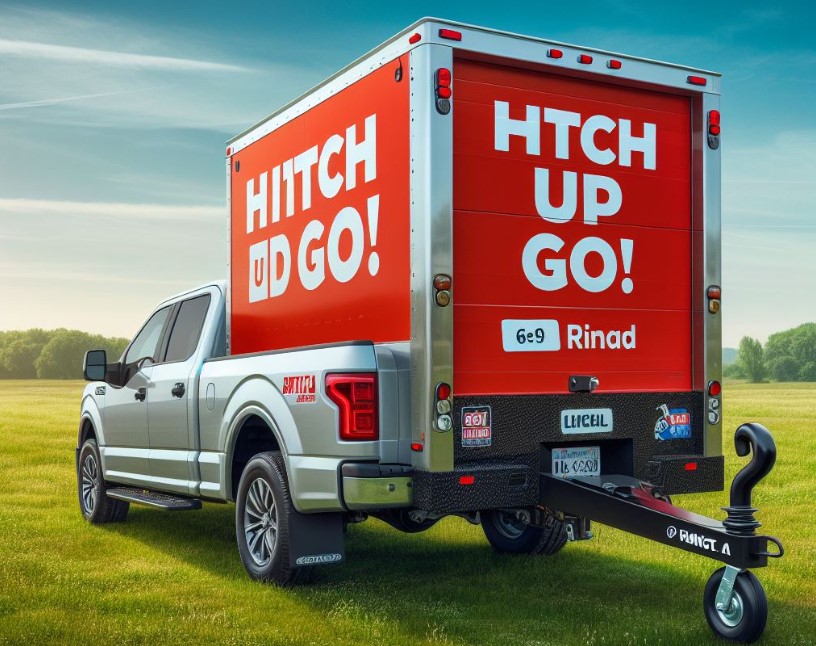
- Towing Permission: Not all rental companies allow towing with their vehicles. It’s essential to get explicit permission from the rental company.
- Vehicle Specifications: Only certain types of vehicles in the rental fleet may be equipped for towing. Typically, larger vehicles like SUVs and trucks are more likely to have this capability.
- Insurance Coverage: Standard rental insurance may not cover towing. Additional insurance might be required to cover damage to both the rental vehicle and the trailer.
- Towing Equipment: The renter may need to provide their towing equipment, like tow hitches and trailers, which must be compatible with the vehicle.
- Safety and Legal Compliance: Renters must adhere to safety regulations and legal requirements for towing, which includes understanding the towing capacity of the vehicle.
- Additional Fees: Some rental companies charge extra fees for vehicles that are capable of towing.
The policy details can vary significantly between different rental companies and locations. It’s always recommended to check with the specific rental provider for their policies on towing.
Can You Tow With A Moving Truck?
Yes, you can tow with a moving truck, but there are several considerations to keep in mind:
- Tow Hitch Availability: Many moving trucks come equipped with a tow hitch, but it’s not guaranteed for all trucks. You’ll need to confirm this feature when booking.
- Towing Capacity: Each truck has a specific towing capacity, which must not be exceeded. This capacity depends on the truck’s size, engine, and build.
- Rental Company Policy: Each moving truck rental company has its own policy regarding towing. Some may restrict the types of trailers or vehicles you can tow.
- Safety Regulations: Adhering to safety regulations, such as proper hitching, load securing, and weight distribution, is crucial.
- Insurance and Liability: Ensure you have the appropriate insurance coverage for towing, as this can differ from standard rental insurance.
It’s important to consult with the rental company for specific guidelines and restrictions related to towing with their moving trucks.
Can You Tow With A U-Haul Pickup Truck?
U-Haul pickup trucks are generally equipped to handle towing, but there are specific guidelines and limitations:
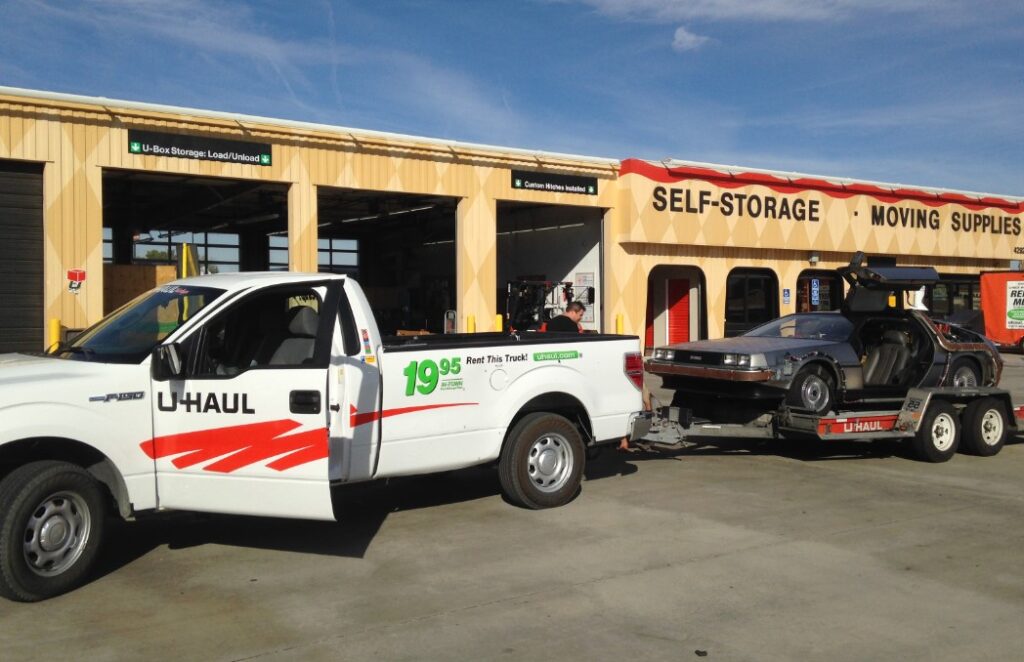
- Hitch Types: U-Haul pickup trucks usually come with a standard ball hitch. It’s important to ensure that this hitch is compatible with your trailer.
- Towing Capacity: Each U-Haul pickup truck model has a different towing capacity. This information is crucial to ensure safe and legal towing.
- U-Haul’s Towing Policy: U-Haul’s policy allows towing with their pickup trucks, but you should confirm any specific restrictions or requirements.
- Insurance Considerations: Verify whether your rental agreement includes insurance coverage for towing and whether additional coverage is needed.
- Safety and Legal Compliance: Follow all safety guidelines for towing, including checking the connection, load distribution, and driving at safe speeds.
U-Haul provides detailed information on their website about towing with their pickup trucks, including capacities and guidelines.
Do All U-Haul Trucks Have Hitches?
Not all U-Haul trucks come with hitches. The availability of a hitch depends on the truck size and model. Here are key points to consider:
- Truck Size: Larger U-Haul trucks are more likely to be equipped with hitches than smaller ones.
- Type of Hitches: U-Haul trucks that do have hitches usually feature standard types, such as ball hitches or receiver hitches.
- Towing Capacity: Each truck with a hitch has a specified towing capacity, which must be adhered to for safety and legal reasons.
- Specific Requests: When renting a U-Haul truck, specify your need for a hitch to ensure you receive a truck that meets your requirements.
- Rental Policy: U-Haul’s rental policy details which trucks have hitches and the associated towing guidelines.
It’s advisable to contact U-Haul directly or visit their website for specific information on the availability of hitches on their trucks.
Conclusion
In conclusion, while many rental trucks are equipped with tow hitches, it’s imperative to verify the specifics with the rental company. This includes checking the type of hitch, towing capacity, and any additional costs or services offered.
Ensuring that the rental truck meets your towing needs is essential for a safe and efficient moving or transportation experience. Remember, always prioritize safety and adhere to legal requirements when towing with a rental truck.
Frequently Asked Questions
Can I extend my rental period if I need more time for towing?
Extending your rental period is generally possible, but it’s subject to vehicle availability and the rental company’s policies. It’s advisable to contact the company as soon as you realize you need more time to discuss extension terms and additional costs.
Do rental trucks come with towing instructions?
Most rental companies provide basic instructions for towing their vehicles. These may include guidelines on attaching the trailer, weight distribution, and safety checks. For detailed instructions, it’s recommended to consult the truck’s manual or ask the rental company.
Is it more expensive to rent a truck with a tow hitch?
The cost can be higher for rental trucks equipped with tow hitches, especially if they are designed for specific towing tasks like vehicle transport. It’s advisable to compare prices and check for any additional fees related to towing when booking.
Can I rent a truck specifically for car towing?
Yes, many rental companies offer trucks specifically equipped for car towing. These trucks come with appropriate hitches and often include additional features like car carriers or tow dollies.

Welcome to the exhilarating world of Matt Rex, a professional car racer turned renowned vehicle enthusiast. Immerse yourself in his captivating blog as he shares heart-pounding adventures, expert reviews, and valuable insights on cars, trucks, jets, and more. Fuel your passion for speed and discover the beauty of vehicles through Matt’s engaging stories and meticulous expertise. Join the ever-growing community of enthusiasts who find inspiration and expert advice in Matt Rex’s blog—a digital hub where the thrill of speed meets the pursuit of knowledge.


